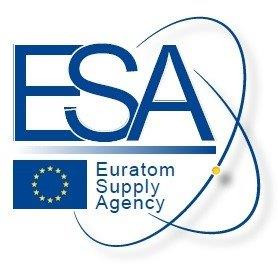 The European Commission (EC) has adopted the Euratom Work Programme for 2023-2025 implementing the Euratom Research & Training Programme and supporting nuclear research with €132m in funding. The related call for proposals will focus on the safety of small modular reactors (SMRs), development of nuclear materials and the secure management and disposal of radioactive waste. The EC specified that the funding would include support for researchers from Ukraine, noting that “Among Eastern Partnership countries, Ukraine is the only country participating in the 2021-2025 Euratom programme.”
The European Commission (EC) has adopted the Euratom Work Programme for 2023-2025 implementing the Euratom Research & Training Programme and supporting nuclear research with €132m in funding. The related call for proposals will focus on the safety of small modular reactors (SMRs), development of nuclear materials and the secure management and disposal of radioactive waste. The EC specified that the funding would include support for researchers from Ukraine, noting that “Among Eastern Partnership countries, Ukraine is the only country participating in the 2021-2025 Euratom programme.”
“The new 2023-2025 Euratom Research & Training Work Programme is increasing the EU’s security of energy supply while ensuring the highest standards of safety,” said Mariya Gabriel, Commissioner for Innovation, Research, Culture, Education & Youth. “And we are proud to mention that the Programme further strengthens the cooperation with Ukrainian research entities and academia.”
The Euratom Programme complements the achievement of Horizon Europe’s objectives and “is also ensuring EU leadership in the development of fusion energy”. The new work programme will provide support to the international fusion materials irradiation facility – IFMIF-DONES. The construction phase officially started in Granada, Spain earlier in March.
Most of the research and innovation – fusion energy, nuclear materials, radioactive waste management and radiation protection – will be carried out through co-funded European Partnerships. This new generation of partnerships, involving a wide range of public and private partners, “should achieve a greater impact”. The Programme also supports initiatives and collaborative projects in nuclear safety, education and training, infrastructures and cross-cutting components including circularity. In addition, the Euratom Programme is seeking synergies in medical application of ionising radiation.
EC says the Euratom Programme “is actively promoting short- and long-term research and competences for the use of nuclear sciences and technologies, in the context of the energy transition and the EU efforts to decarbonise its economy by 2050.



